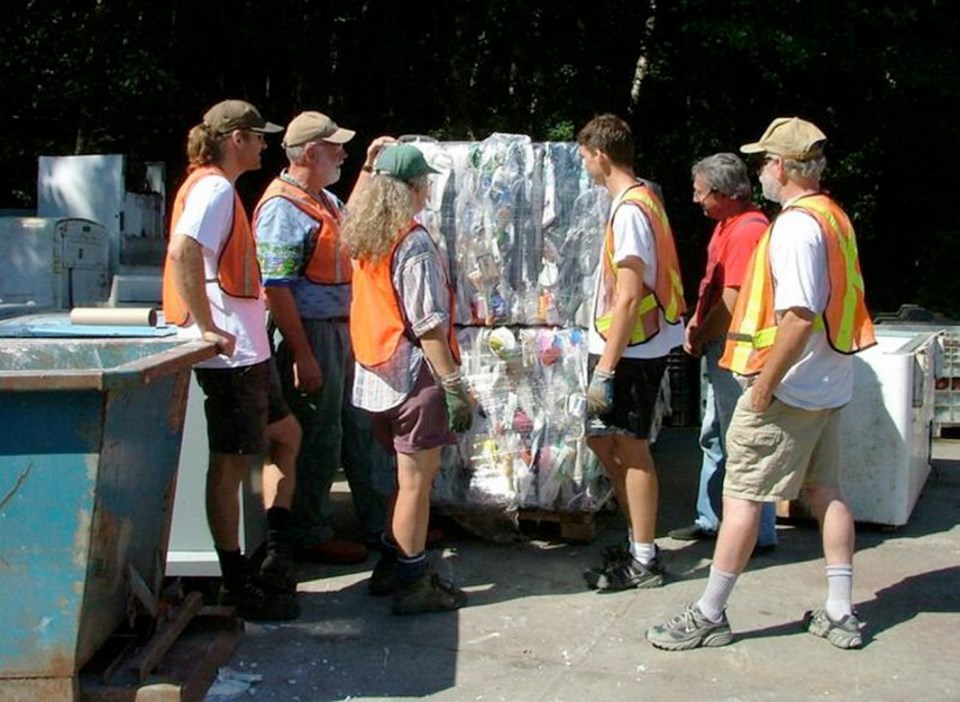Recycling in some rural and isolated communities is at risk under B.C.’s new recycling program, say members of the Southern Gulf Island Recycling Coalition.
While the program covers most recycling costs in urban areas, it covers less than 30 per cent of costs on the islands, they said. The Capital Regional District is paying the difference this year, but that funding expires April 30.
“Worst case, if we can’t find the appropriate top-up funding, is that some of the depots might have to close their doors,” said Richard Philpot, member and former president of the Pender Island Recycling Society.
B.C.’s recycling regulations, amended in 2011, require businesses that supply packaging and printed paper to assume responsibility for the cost of collecting, sorting and recycling those materials. Multi Material B.C. was formed to represent those businesses and began running the new recycling program in May. It set a goal of diverting 75 per cent of the province’s recyclables from landfills.
Multi Material offered financial incentives to local governments such as the CRD to join its program, calculated at a per-household rate in communities with curbside pickup and at a per-tonne rate for those using depots.
For communities with curbside collection, incentives range from $32 to $39 per household. But on the Gulf Islands, which do not have curbside pickup, the incentive worked out to about $7 to $8 per household. “Why is a household on a Southern Gulf Island worth less than a household in another region?” Philpot said.
The coalition wrote to Environment Minister Mary Polak in August. “Depot funding was underestimated from the beginning and the funding formula is the same for all depots, regardless of their individual needs or geographic location,” it said.
One of the coalition’s fears is that rural areas with established recycling systems will be neglected, if the 75 per cent diversion target can be reached more easily by focusing on urban areas.
While depots can collect new materials, including styrofoam, many are no longer accepted, including plastics that aren’t packaging, such as cutlery and toys.
“Because we are collecting a reduced variety of material, more materials are entering the landfill,” the coalition said in its letter.
Multi Material director Allen Langdon said this is an issue between the CRD and the depots, since Multi Material does not have a direct contract with depots.
But he said Multi Material has taken steps to even the playing field for rural communities by assuming transportation costs, including ferry charges. “While we have a standard formula, we’ve tried to make it consistent and make sure that rural areas weren’t at a disadvantage,” he said. “We feel that’s a way to equalize the approach for both rural and urban [areas].”
Tom Watkins, CRD solid waste and recycling operations manager, said the CRD was able to offset the shortfall for island depots this year using excess funding from Multi Material blue-box collection payments from other municipalities, as well as revenue from landfill tipping fees.
Whether or not the CRD continues its relationship with the Southern Gulf Islands after April 30 will be decided by the CRD board. “CRD staff are working with island depots to better understand their potential cost reduction strategies to fully inform the CRD board on decisions it will make regarding future funding commitments,” Watkins said.
For Island recyclers like Peter Grant, manager of the Saltspring Island Recycling Depot, it’s a matter of wait and see. “Right now, the CRD has graciously agreed to pay the Gulf Islands as before … but they’re not obliged to,” he said. “Come May, we may have no money to operate,” Grant said.



